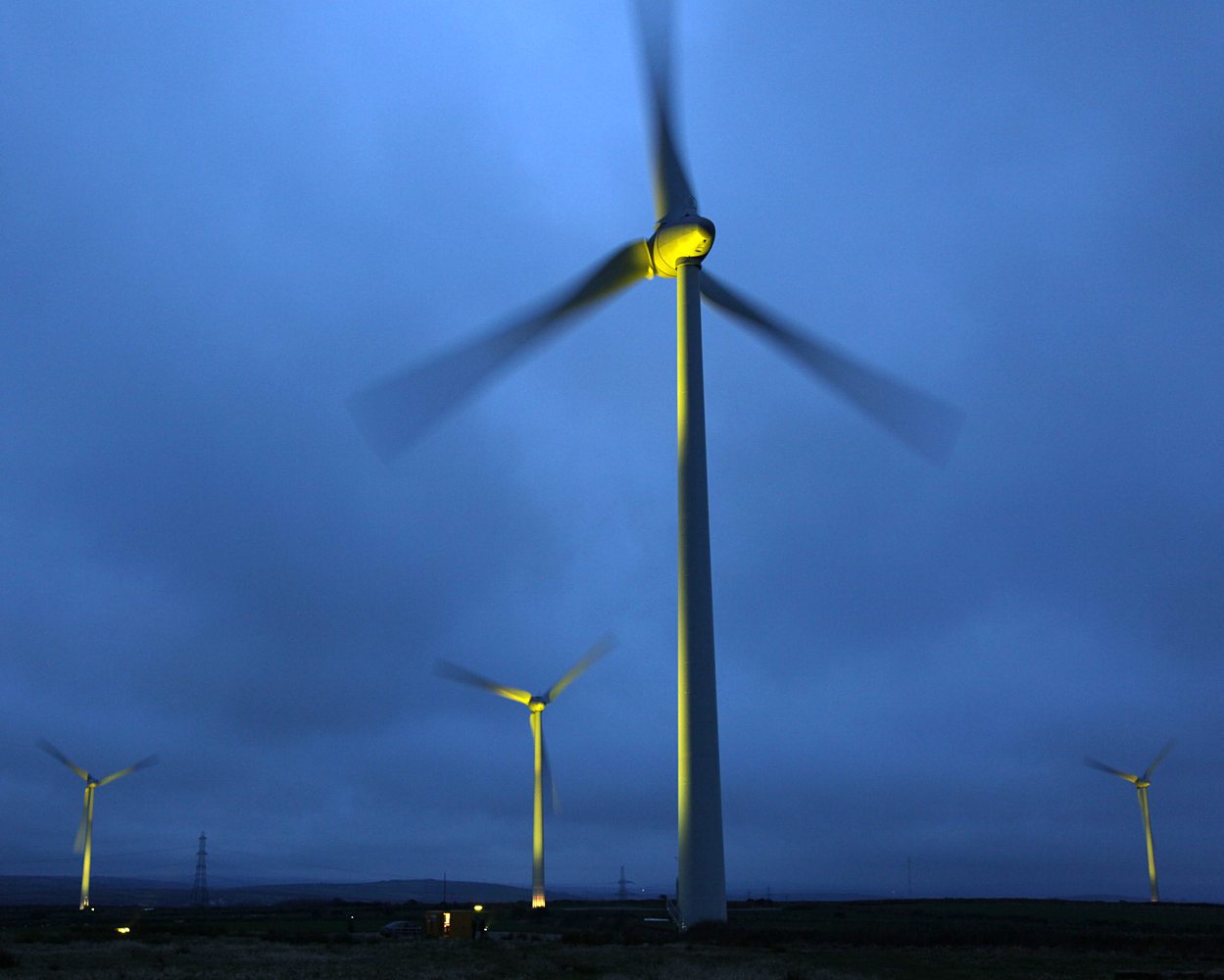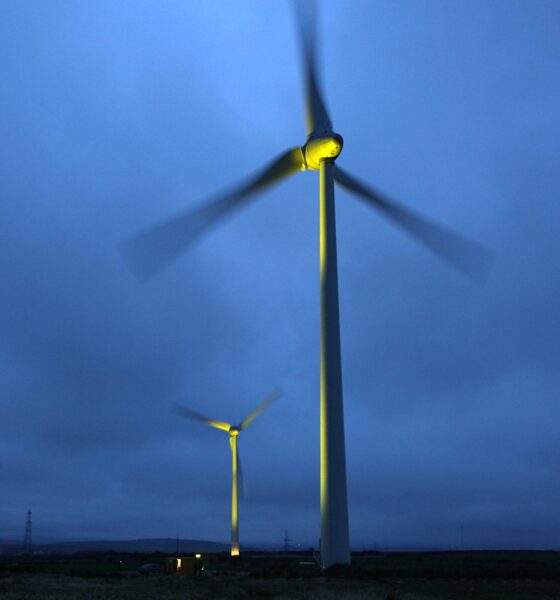

Economy
Good Energy customer on BBC Question Time: ‘my energy bills have never been cheaper’
Broadcast from the beautiful Cornish town of St Austell, two leading renewable energy suppliers got a mention on Question Time, the BBC’s flagship political debate programme, on Thursday.
The mandatory question about energy prices (26 minutes in) prompted the usual myths about an aggressive, subsidy-hungry and landscape-blotting renewable energy industry, compared to a seemingly non-taxpayer funded, landscape- and air quality-enhancing fossil fuel industry. And we all know nuclear power isn’t subsidy hungry, don’t we?

We prefer the image on the left...
The current Labour policy is to freeze energy prices for 20 months. The government’s proposal is to increase switching and competition. On Wednesday, energy secretary Ed Davey announced an annual review of competition in the market.
After a debate that offered more heat than light, we were delighted to hear reason from one of the members of the audience.
“I take my power from one of the smaller companies”, he said.
“They have 100% renewable energy. They have a wind farm at Delabole up in north Cornwall, and my bills have never been cheaper.”
He added, “You used to pay a premium [for renewable energy], but the rest of the market has now caught up.”
When pressed on who the company was he said, “Good Energy plc.”
‘You used to pay a premium’
As anyone who understands technology knows, a technology’s efficiency increases and price falls over time. This applies to mobile phones, computers and renewable energy. Conversely, this does not apply to fossil fuel-based energy where the raw material is harder to find and extract and the harm from extracting it and burning it rises exponentially.
One of the audience made the excellent point that that we are investing too little in wave power, which is odd for a country surrounded by waves. This also applies to offshore wind and tidal (Britain has some of the greatest tidal ranges in the world, for example).
Some sort of combined offshore wind, wave and solar pylon might be a good idea.
Matthew Hancock, business minister and Conservative MP for West Suffolk, who was defending the government’s focus on switching, said, “I have, in fact, switched to one of these newer renewable energy providers.”
When pressed on who he had switched to, he said it was Ecotricity.
While we welcome his enlightened decision, this is a contradictory position for a man who has lent his support to those who oppose wind farm development in his own constituency.
He may want to have a chat to the constituents of neighbouring fellow Conservative MPs Elizabeth Truss and George Freeman whose local areas have, respectively, Ecotricity’s existing single turbine wind farm and planned two-turbine wind farm, about why he’s willing to take energy from these blots on the landscape, but not support the development in his own constituency.
Being happy to blot someone else’s landscape but not your own is hardly a morally defensible position.
On its website, Ecotricity says of the Shipdham development, “This is the 10th year of Ecotricity trying to get planning permission for turbines on this site and so far we have faced three public enquiries and a trip to High Court. We have been given planning permission and then planning permission has been taken away from us.”
The local residents feel very strongly about the new turbines, saying that they “have been persecuted by repeated wind farm applications by this developer for 10 years.”
Hancock’s contradictory position reflects the challenge we all face.
Every household needs electricity. The UK needs cleaner energy. To happily take renewable energy, as long as the wind and solar farms are not next door, is hypocritical. Especially for a public figure who should provide clarity and leadership in the debate rather than confuse it.
Renewable energy is the only form of energy where the local community has a say. Nuclear and gas can be imposed by the secretary of state. The debate is not whether you want a renewable energy source near your home, but whether you’d prefer any energy source near your house. If you don’t, you have no real right to use it.
The right to use electricity comes with some responsibility for its generation.
Opposition to infrastructure development is the default position of most people, but caving in to this natural response would have meant no industrial revolution, no railways, no motorways, no sewers, no electricity grid and a failed economy.
We hope Hancock will now come out as a loud and proud supporter of renewable energy and wind farms.
Switch to Good Energy today. As the audience member said, “My bills have never been cheaper.”
Further reading:
Government risks discouraging investors with lack of clarity, says renewables industry
70% of people ‘happy’ with wind farms being built near their homes
Industry could build solar equivalent of Hinkley in two years, firm tells PM
Climate change aside, we’re harming our children with dirty energy


 Features11 months ago
Features11 months agoEco-Friendly Cryptocurrencies: Sustainable Investment Choices

 Energy11 months ago
Energy11 months agoThe Growing Role of Solar Panels in Ireland’s Energy Future

 Energy10 months ago
Energy10 months agoGrowth of Solar Power in Dublin: A Sustainable Revolution

 Energy10 months ago
Energy10 months agoRenewable Energy Adoption Can Combat Climate Change























